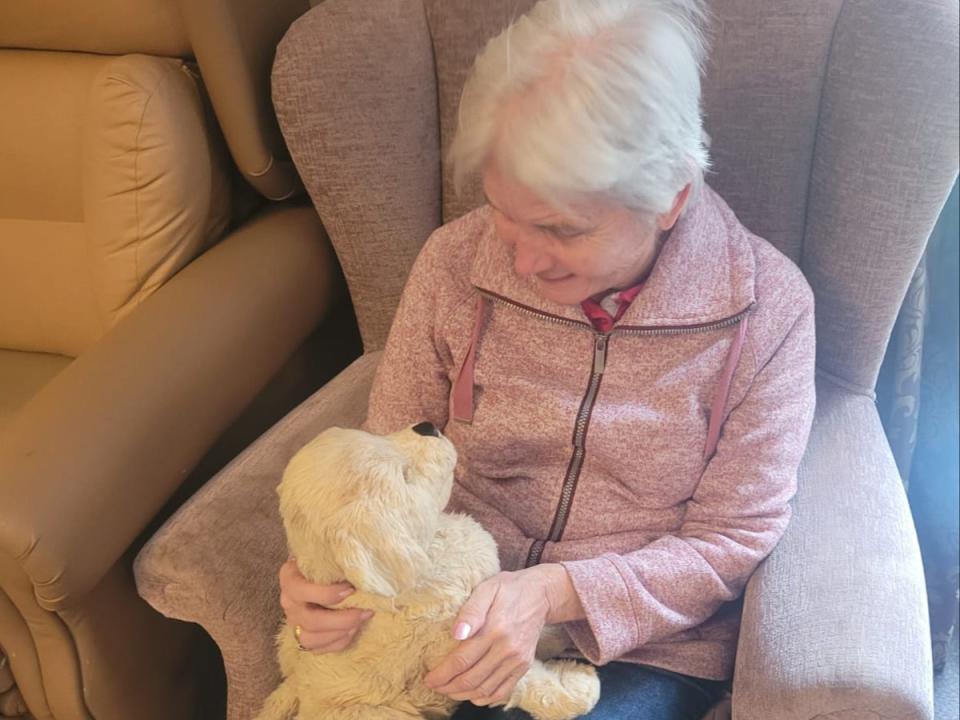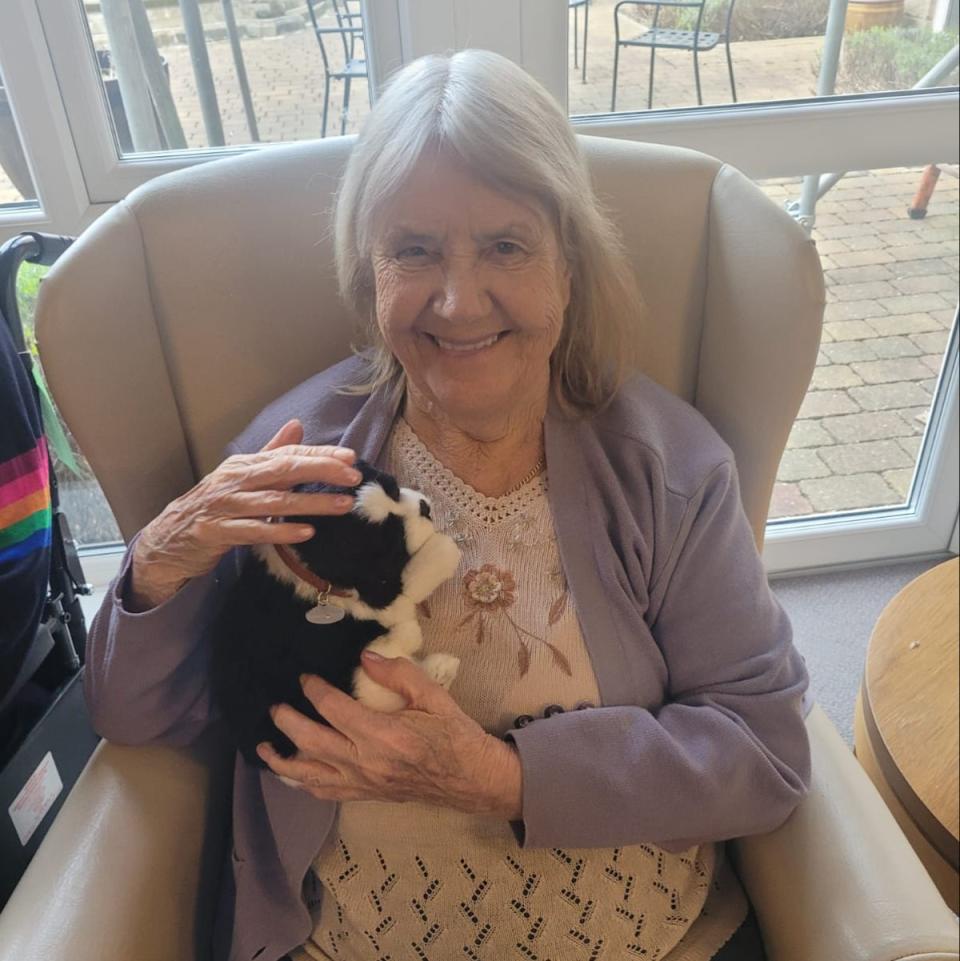Robot pets given to care home residents suffering from dementia

Care home residents have been given robotic pets to draw comfort and friendship from as part of a remarkable dementia treatment strategy.
Belvedere Care Home in Colne, Lancashire has been using fake pups and kittens to help residents gain a “sense of purpose” and give them their own furry friends.
The animals are used throughout the home, but are specifically used to aid residents with dementia as part of the care home group’s dementia care strategy.

Staff said that in one case, a woman with advanced dementia saw her fall risk reduce almost completely as the fake pets helped her condition.
“There are lots of proven benefits such as companionship, friendship and a sense of purpose,” manager Gillian Towers said.
“They reduce agitation and distressed behaviour, particularly among residents with dementia.
“One lady with advanced dementia would have frequent falls if she was in distress. But after we gave her a dog, her fall risk was reduced almost completely.
“As her dementia is advanced, she thought the dog was real so it gave her a sense of purpose.”

The home currently has five pets including cats that purr and miaow and dogs that bark along if spoken to.
Ms Towers added that many residents used to have pets at home and find comfort in the robotic ones.
“Some of our residents are not pet people and that’s fine, but others love them,” she said.
“Residents name them and one resident missed her own dog so took the robot one everywhere with her. It brings happy memories.”
A study into using robotic pets in care homes by researchers at Plymouth University found that residents given the pets demonstrated positive effects, such as a decrease in depression and anxiety.
Dr Hannah Bradwell, who led the research said: “Our results suggest that affordable robot pets are able to produce important wellbeing impacts for older adult care home residents, with further potential positive impacts for staff through reduced occupational disruptiveness.
“Interviews and calendar free-text observations demonstrated that the robots were calming, reduced anxiety, improved mood, relaxed residents, reduced agitation, and provided reassurance.”


